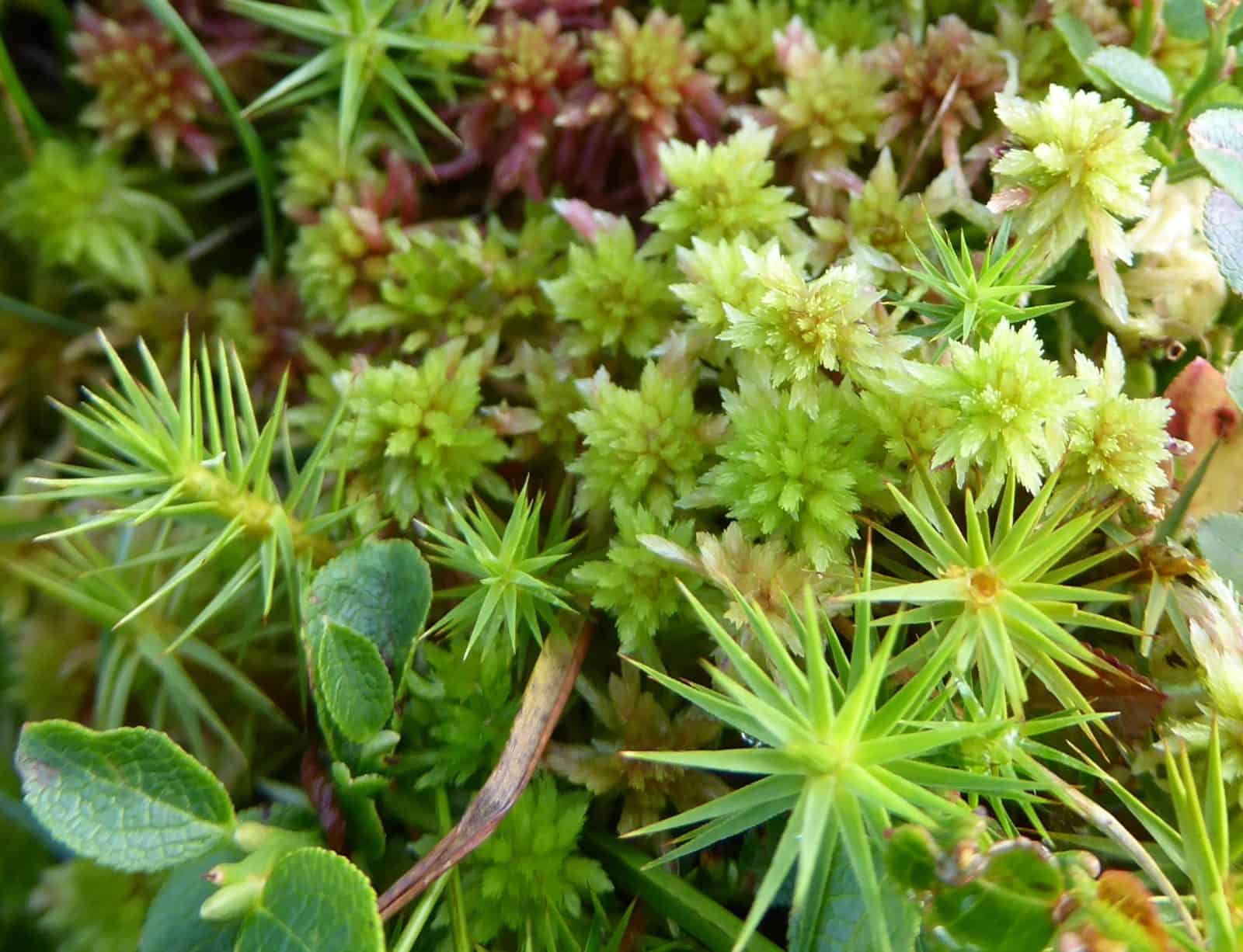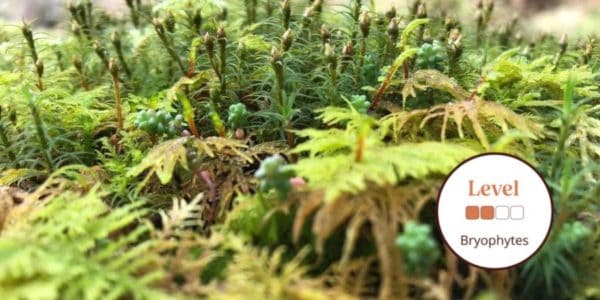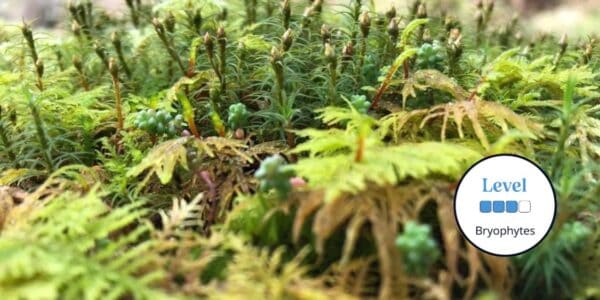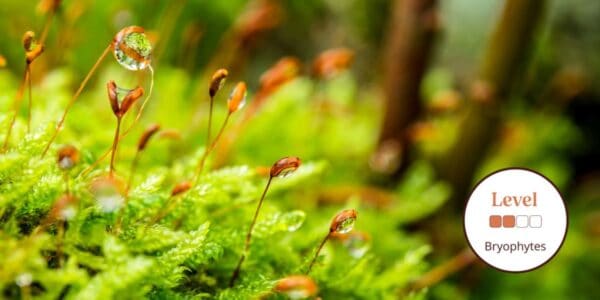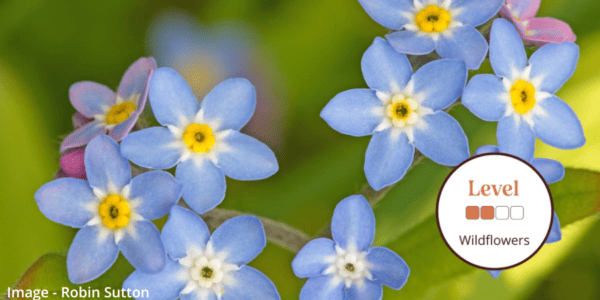This beginner to intermediate course will consist of field excursions, during which we will see different Sphagnum moss species in situ and will learn to use keys to identify them.
Sphagna are ecosystem engineers which create wetland habitats of huge importance from a biodiversity, conservation, and carbon sequestration perspective. Correctly identifying Sphagnum to species is important not just for ecological consultants, but also for conservation professionals and volunteers.
Read More
Combining the use of field keys and laboratory skills, this course will allow attendees to get to know Sphagnum and make reliable identifications. The course will also have an indoor component during which the tutor will continue to guide attendees through the use of the key in group activities and individual work, as well as looking at diagnostic features with the use of a microscope. During the course, we will learn to use the key contained in the AIGAP publication ‘Sphagnum mosses: field key to the mosses of Britain and Ireland’ by M Godfrey and K Rogers. The key combines microscopic and field characters, making it suitable for use both in the field and in the lab.
The location of the course in the Snowdonia National Park, where the genus is very well-represented, will make it possible to see and become familiar with many common Sphagnum species as well as some of the more oceanic species.
Who Should Attend? – Nature enthusiasts, Students, Early career ecologists, Citizen scientists, Volunteer surveyors, Land managers
Knowledge Level – Beginner. Level descriptors can be found on the following webpage: Framework and Course Level Descriptors
Prior Knowledge – An understanding of bryophyte features and terminology will make it easier and quicker for participants to learn to identify Sphagna.
What will be covered during this course?
- Introduce the genus Sphagnum
- Using field keys to identify Sphagnum
- Develop field identification skills
- Introduce and develop lab-based microscopic identification skills
By the end of the course, you will be able to:
- Have a good understanding of the characteristics of the genus Sphagnum
- Use the field key to identify common Sphagnum species
- Use a microscope to identify relevant microscopic features of different Sphagnum species
- Share this knowledge with friends, family, and fellow volunteers
Example Timetable
This timetable is subject to change but should give a clear outline of what to expect
Please arrive in time for the course to start promptly at 10:00am
The course will end at 5:00pm
Day 1
10:00am
Introductions
10:15am
Classroom session covering:
Introduction to the genus Sphagnum
11:00am
Break and prepare for field session – refreshments not provided
11:15am
Group activity: introduction to the AIDGAP key, its terminology, and main features.
This session will include using the key to identify specimens and working through the key together.
12:00pm
Lunch – Not included
2:00pm
Field excursion
4:30pm
Classroom plenary and final questions
5:00pm
End of day 1
Please note accommodation and an evening meal is not included
There will be an optional evening session (19.00 – 21.00) aimed at providing additional support to attendees with the use of microscopes and with further use of the key.
Day 2
10:00am
Recap of day 1
10:15am
Field excursion
13:00pm
Lunch – Not included
2:00pm
Individual learning session with tutor support: work through specimens collected during field excursions using the key and microscope.
3:00pm
Break – refreshments not provided
4:30pm
Classroom plenary and final questions
5:00pm
End of course
What's Included
The course includes:
- Classroom learning covering the theory of the species
- Field excursions to apply new knowledge
- Expert tuition for which the Field Studies Council is renowned
- Clear objectives and progression
You can rest assured that the absolute best content from an expert in environmental education will be provided. In choosing a Field Studies Council course, you will be joining thousands of people who learn with us each year.
Bursaries and Subsidies
Student Discount
This course is eligible for a student discount. If you are a current student, please use discount code BioStudent20 at checkout for 20% off all Biodiversity courses.
Natural History Bursaries
There are a number of natural history bursaries available to help with the cost of your course. To find out if you and your chosen course are eligible, find out more here.
Before You Attend
Please Bring:
- Notebook and pencil
- Camera to capture images
- Please bring your own refreshments & pack lunch
- Sensible footwear and clothing for being outdoors
- Small polythene bags to collect Sphagnum in the field
- Recycled paper to use as storage for Sphagnum specimens
- The AIGAP publication ‘Sphagnum mosses: field key to the mosses of Britain and Ireland’ by M Godfrey and K Rogers
If you have them:
- Hand lens (x20 if possible)
- Dissecting and compound microscope
- There will be a member of staff with first aid training and access to a first aid kit on site. If you have special medical or access requirements, please let us know as soon as possible so we can plan the course.
Opportunities to attend this course
This course is not currently available to book. Dates will follow soon.
Sign up to our Email Newsletter
Progress Your Learning
This is a training course from the Field Studies Council, delivered by expert tutors with an approachable learning style. After attending this course, you may like to progress your learning with further relevant courses or branch out into other areas of natural history. The Field Studies Council offers both online and in person courses, so you can choose the learning style that suits you best.
The course gives you the opportunity to immerse yourself in a new subject and acquire novel skills. Our online portal gives you time to study at your own pace and fit the lessons around your own schedule.
If you have any questions about our online courses please check our Frequently Asked Questions
Please email [email protected] if you have any questions.
Group Bookings Made Easy
If you have a group of 10 or more individuals wanting to complete one of our courses, our team are available to discuss your options – from discounts to private team courses. Find out more!
You can rest assured that the absolute best content from an expert in environmental education will be at your fingertips. In choosing a Field Studies Council course, you will be joining thousands of people who learn with us each year.

